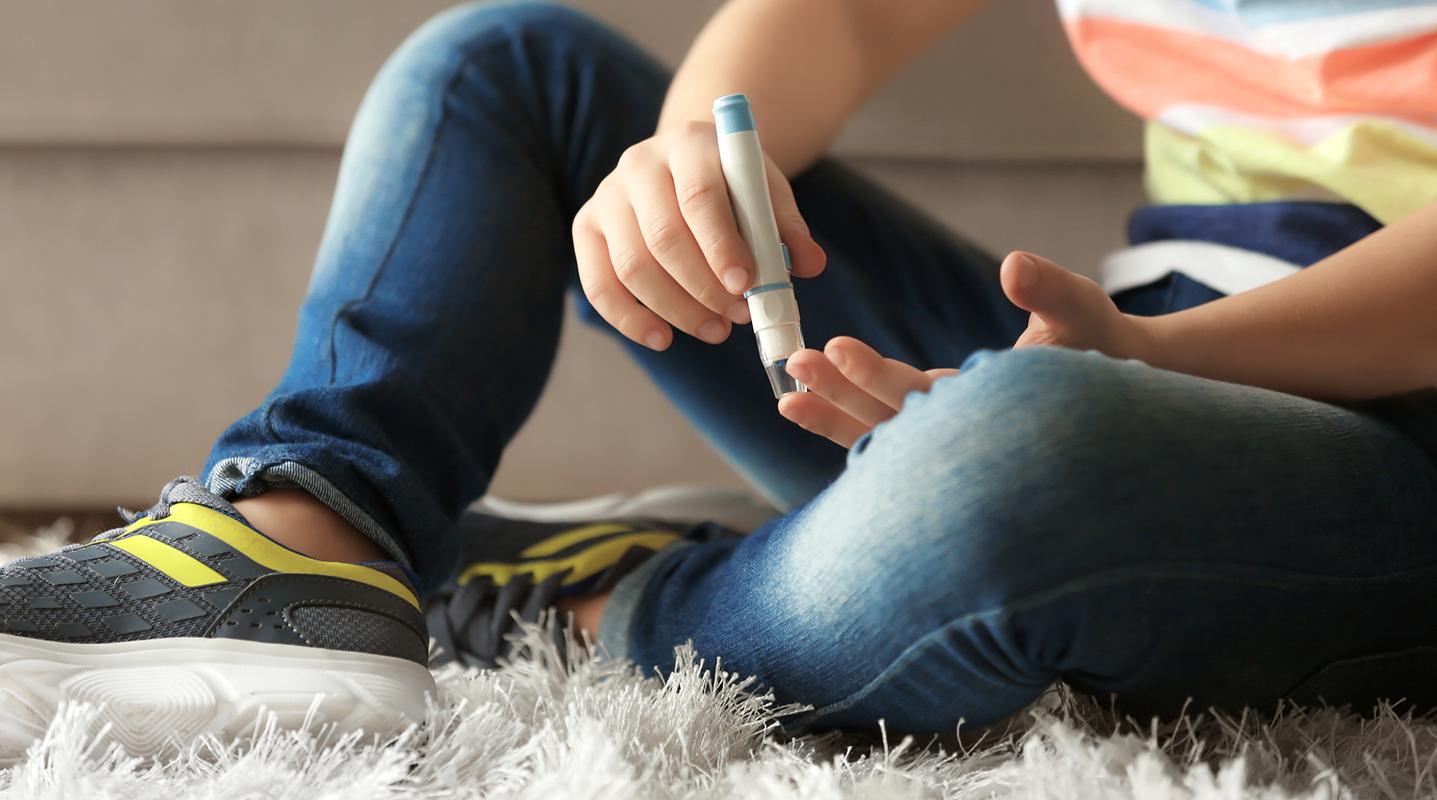How to Talk to Your Child About Their Diabetes
January 24, 2023

You might feel sad, worried or confused when your child is diagnosed with type 1 or type 2 diabetes. And your child probably feels those things, too. Fortunately, your child’s care team at Joe DiMaggio Children’s Hospital (JDCH) can help both of you better understand your child’s diabetes diagnosis. They’ll guide you and your child through that first conversation about diabetes, and model ways you can talk to your child, their siblings and their friends about the condition.
When talking about diabetes, we suggest following these guidelines.
Be Honest about Diabetes
Most children who are diagnosed with diabetes learn the news when they are in the hospital. They may have received an IV. They may have had blood tests. They know something is wrong.
“It’s more damaging to not tell a child what is wrong,” says Sarah Hart-Unger, MD, pediatric endocrinologist at Joe DiMaggio Children’s Hospital.
Dr. Hart-Unger says children and teens often want to know right away what it means to their lives. Can they still play soccer? Can they still go to the prom? Can they still eat birthday cake? You can answer honestly that they can still do all those things if they take their medicine.
Emphasize that Diabetes Doesn’t Limit Your Child
Though diabetes will affect your child’s day-to-day life, it doesn’t need to affect their life goals.
“Anyone with diabetes can do whatever they want with their lives,” says Dr. Hart-Unger. “This will not limit you whether you want to be an athlete or president. The sky is the limit.” Children with diabetes aren’t sickly. Our team of pediatric endocrinologists, registered dietitians, diabetes educators and more will help you and your child learn how to manage their condition. They can thrive with their condition, and treatments are improving all the time.
“The tools we have now are ten times better than we had even 5 years ago,” says Dr. Hart-Unger. “It’s hard to predict exactly what will come, but management will get better and better.”
Explain Diabetes in Simple Terms
Dr. Hart-Unger recommends explaining diabetes to fit your child’s level of understanding. For a toddler, that might mean saying that their body is feeling tired or sick and that the medicine will make it feel better. For teens, it may mean explaining the role of insulin in the body.
Dr. Hart-Unger often uses this outline for a conversation:
- A hormone is a message in your blood.
- When you have diabetes, you are missing a message called insulin.
- Without insulin, sugar builds up in your blood and can’t get into your cells that need it for energy.
- You might feel hungry, thirsty or tired a lot because your cells aren’t getting the sugar.
- Medicines bring back insulin so your cells get sugar and you feel better.
- Your medicines make sure you can live a healthy life.
The teams at JDCH empower children and teach families what to do at home. While your child is in the hospital, we help you and your child get used to checking their blood sugar and giving them insulin injections.
“We do a lot of demonstrations with insulin administration devices, such as pens,” says Dr. Hart-Unger. “Children often think of a big needle that makes their arm hurt. But our needles are in often in easier-to-use pen devices and are much smaller and shorter.”
The child life team will help your child practice giving themselves injections with practice pens that don’t have needles. Your child will also play pretend by giving injections to dolls. This makes the process feel more normal and less scary for kids when it’s their turn to give themselves an injection.
Find Answers to Your Diabetes Questions
If you can’t answer some of your child’s questions about diabetes, you can find reliable information about diabetes online. We recommend visiting the Juvenile Diabetes Research Fund (JDRF) and American Diabetes Association websites.
We also provide a handbook to help you find answers at home. If you can’t find the answer you’re looking for, our team is available to help you any time. We have a fantastic team of doctors, nurses, dieticians and more to help support you from the moment your child receives their diagnosis and beyond.
Achieve Your Dreams with Diabetes
Diabetes doesn’t have to limit your child’s life goals, whether they want to be president or a pro athlete. Many celebrities, athletes and more have diabetes, including:
- Jay Cutler, former NFL quarterback
- Nick Jonas, pop star
- Sonia Sotomayor, Supreme Court Justice
- Lila Moss, fashion model
- Brandon Morrow, former MLB pitcher

